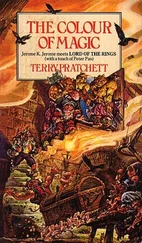Teresa took the boy to the back of the house and fed him the bread softened in milk that she had prepared. She would hide him in the house for the night, stay with him, and protect him against her husband.
She laid the baby on a small upturned wooden bench that she had lined and covered in blankets. He would be safe with her. She would remain with him all night. Perhaps she would never sleep soundly again. Her life was guarding this child: against her husband and against the world.
‘Paolo,’ she said quietly. ‘I will call you Paolo.’
When Teresa woke she knew that something was wrong.
Her son had disappeared.
This was the punishment for all the elation he had given her. She could hear the men downstairs, laughing as they began their day’s work. She must ask them, force them even, to tell her what had happened.
‘Where’s Marco?’ she asked the stizzador, as he stoked the furnace.
The man shrugged.
‘Have you seen the child?’ she asked the apprentice.
‘The bastard?’
‘Not the bastard. The child.’
She felt the fury rise inside her. This was how they spoke. Already the apprentice had learned.
‘The foundling.’ It was as if he was correcting her.
‘My child,’ she shouted.
For a moment there was silence. The two men turned away.
Teresa walked outside and looked down the street. It started to rain, sudden and hard, momentarily confusing her. She tried to think how far Marco’s anger could stretch and the panic made her wild. She ran through the streets, asking all who would listen. She asked the boat builders, vintners, bakers, and butchers; the masons, shoemakers, coopers, and carpenters; the smiths, the fishermen, the barber, and the surgeon if they had seen either her husband or her child. She asked children and grandmothers, the lame and the sick, but it was as if the whole island was locked in a conspiracy to prevent her discovering the truth. Eliana the soothsayer who had never found a husband, Felicia the lace-maker from Burano who had married badly, Franco the blacksmith, Sandro the cooper, Domenico the farrier, Francesco the merchant, Gianni the vintner, Filippo the usurer, even Simona, whom half the island pitied and the other half envied because she too was barren, could not help Teresa in her search.
The rain caught in her hair and splashed up her bare legs. There was nowhere else to go, no one she could ask. Then she thought to check their boat. How could she have been so slow? Was this not the first thing she should have done?
Her sandals were waterlogged and she stopped to take them off, running barefoot through the slippery streets. Perhaps Paolo would be resting in the boat, waiting for her as he had when she had first found him.
She was struck by the shock of memory.
Her pace began to slow, as if she dared not face the inevitability of absence. How could Marco have done this?
She stopped, breathed in, and let the rain fall.
She closed her eyes, praying the boat would be there, and that her husband would be with the child.
But the sandolo was gone.
Perhaps she had not prayed hard enough.
Teresa knew that she should go to the church of San Donato and pray without ceasing. She would let God know how much she loved her son.
It was raining so hard that she could hardly see. Her body twitched as she ran, as if shaking off the rain and ridding herself of anxiety were one and the same.
She entered the church, took from the stoop of holy water, genuflected, and ran to the front of the nave.
She slid down onto her knees, and lay prostrate before the altar.
‘Mary, Mother of God, Mother of all Mothers, aid me in my distress.
‘Mary, Mother of God, Mother of all Mothers, who knows what it is to love a son, aid me in my distress.
‘Mary, Mother of God, Mother of all Mothers, who knows what it is to lose a son, aid me in my distress.’
She stretched out her arms in submission.
Teresa would not move until Paolo was returned to her. She would lie through every service, each day and every night until Marco, God, and the island had mercy upon her.
For the first hour, no one took any notice. Acts of devotion were common, and the priest almost applauded her piety. But as the day wore on, and services continued, people began to whisper that it was strange she had not moved. One woman noticed that a glass bead from Teresa’s rosary had shattered on the floor. Another wondered if she might be dead.
By the afternoon, an elderly lady remarked that she had never seen such piety; another observed that the prostrate woman must have many sins to forgive. At last someone suggested that they should go and tell her husband.
The priest was summoned, and he agreed to fetch Marco himself. It was a husband’s job to look after a lunatic wife, not a priest’s.
By the time he returned, a crowd of people had congregated under the mosaic of San Donato.
Teresa’s head rested in a circle of porphyry that made it look, to the disapproving, as if it had already spilled its blood. To the faithful it could have been a halo.
Then Marco arrived, pushing through the crowd.
He stopped, halfway up the nave.
‘Rise, woman.’
Teresa did not move.
‘I said, rise.’
Marco looked to the priest, who gestured that he move forward, encouraging him to join her on the floor. Marco was suspicious.
The priest gestured again.
Reluctantly Marco walked forward, stopped, and then crouched down beside his wife, his knees cracking in the echoing church.
Teresa shut her eyes more tightly.
Marco lay down beside her. The cool of the floor began to chill his bones.
‘The child is safe,’ he said at last.
Still Teresa said nothing.
‘Safe,’ Marco repeated.
What was he supposed to do?
‘He is with the friars, on the Island of the Two Vines. They will look after him.’
Teresa sensed the people were there, watching, but she knew that she had to stay here, completely prostrate, until her husband consented to her every demand. If she capitulated now she would never see Paolo again.
‘Only I can look after him …’
Marco lay on the floor without knowing what he should do. He listened to his wife breathing as he did when he could not sleep; and, in the cold drama of that moment, he realised that perhaps he had never loved Teresa so much as he did now. She was prepared to humiliate herself or even die to fight for that child. He started to sit up and tried to take her hand, but it lay outstretched, palm down against the marble. ‘I am sorry.’
‘Give me my son.’
Marco tried to pull Teresa up from the floor, but still she would not move. About to let go, convinced that his wife would do nothing until he brought the child into the church and placed him back in her arms, he replied with two words: ‘Our son.’
Teresa’s grip tightened. Her left arm bent at the elbow, as if she was beginning to raise her body. She moved slowly, testing her ability to do so, checking that this was no dream. She rose from the ground and put her arms around her husband.
‘Let me go there. Let me bring Paolo home.’
‘Forgive me,’ cried Marco.
Teresa held him to her. ‘I will never ask anything of you again.’
The people under the mosaic began to move away. Marco and Teresa were embracing, clothing each other against all the doubts and fears of their future.
The next day Teresa rowed across the lagoon to collect her son. She could see the Island of the Two Vines from Murano, the bell tower jutting out amidst the cypress trees, and kept it in her sights throughout the journey, fearing it might disappear if ever she looked away.
She tied up the boat and walked across the marshes. Gradually the ground became firmer. A group of finches started up from the grass as she walked, and the air was loud with the sound of swifts, swallows, and cicadas. Ahead lay a grove of olives.
Читать дальше











